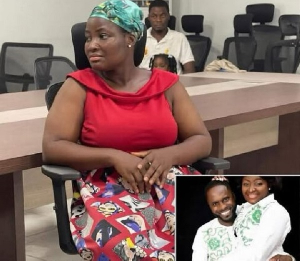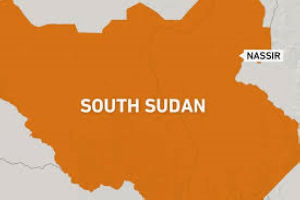Free Secondary Education (FSE) in Ghana or anywhere in the world has nothing to do with affordability.
“Whatever we can do….. wherever we can find the resources…… we should and we MUST do it,” President Akufo-Addo has once said.
The prevailing national statistics on literacy are disconcerting.
Published research evidence show that an educated population will keep a healthier environment and improve personal hygiene which has a correlation with better health outcomes within the population, especially for women.
Thus, FSE is a laudable equal opportunity policy which when properly executed will also bridge social status gaps within two to three generations.
Currently, the nation’s gross tertiary enrolment ratio is an appalling figure when compared with South Korea’s minimum of 97 percent for both genders. With FSE Ghana can hopefully attain this status within the period of the Education Strategic Plan (ESP 2018-2030).
FSE is therefore now part of BASIC EDUCATION which means it is compulsory for a Ghanaian child to remain in school until age 18. Since schooling is compulsory until age 18, affordability is out of the question.
Therefore the rich cannot be asked to pay when their children attend public schools.
Through the compulsory FSE, it is our hope that a proper nationalist orientation within a well-planned curriculum will be engendered between teachers and learners. Private schools are not obliged to use or follow a national curriculum.
When implemented well in a non-partisan manner, 70 years from now, when we are gone, our children will look back and say, “See this our fathers did for us.”
BUT, why have some persons raised the affordability question?
In 2018, Ken Ofori-Atta, the finance minister, suggested that he could pay and therefore called on other rich people like him to also pay.
This clearly means that even some members of government do not understand the philosophical underpinnings or rationale for why FSE is sorely needed.
The editorial of the Tema Medical Journal (TMJ) published in 2012 emphasized the multiple benefits of FSE to the health of the nation.
Of course, FSE as we have it now has not been implemented.
Critics are justified in bemoaning the lack of proper planning. From the day Akufo-Addo stuttered before Stephen Sackur on BBC’s HARDtalk at least seven years ago, there has been no credible source of information about the actual cost per child per year.
The Ghana Education Service (GES) cannot give accurate data about actual enrollment and cost at any given point in time, say the end of the first term/semester of the 2018-19 academic year.
Private schools, if they are willing to follow certain curriculum guidelines should be able to receive funding to enroll some students.
Currently, many private secondary schools are collapsing because of poor student enrollment.
The GES and other policy makers should NEVER fall into the post hoc fallacy that selection of public funded secondary schools is an admission of quality education in those institutions vis a vis the neglected private schools.
But there is another problem; even if the Ministry of Education decides to pay private secondary schools to admit students, the National Council for Curriculum and Assessment (NaCCA) has not been able to expose and explain the curriculum properly to the nation.
From the 2019-20 academic year beginning this September, the new Standards-Based curriculum will cover only primary one to six.
We can therefore conclude firmly that since the status quo ante has led to massive failures, and the yet-to-be implemented curriculum reform does not cover secondary education, the medium term (three to five years) outcomes of the FSE corps will result in a massive failure.
And by failure we do not mean exam scores obtained at the WASSCE; we refer to the ideal goals of FSE as a best practice with direct impact, among others, on health outcomes, STEM education and development of middle level manpower for industrialization.
With at least 17 oil wells and almost 100 percent control over our natural gas reserves, if we cannot think through and implement funding for the noble goals of quality FSE, then this nation shall sooner than later face a doomsday catastrophe.
“We are a failing nation,” Ghana’s Minister for Education has boldly and frankly admitted publicly.
He has been courageous in the midst of the perennial doublespeak that we get from our elected leaders and their paid hirelings.
What else are we waiting for?
Feedback; ato@writersghana.com; www.writersghana.com; LinkedIn, Isaac Ato Mensah; Instagram, @atomenswriters; Twitter, @Atomens; Facebook, Isaac Ato Mensah; Telegram, Isaac Ato Mensah; Quora, Isaac Ato Mensah. WhatsApp (+233) 020 022 0353.
Writers and Shakespeares Ghana Limited exist to be a moral and intellectual guide to the best practice of PR and integrated communications around the world, beginning with Ghana.
Opinions of Monday, 15 July 2019
Columnist: Isaac Ato Mensah















